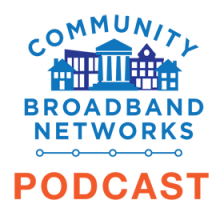Market Dynamics, Regulations, and Historic Fiber Investments in Europe - Episode 536 of the Community Broadband Bits Podcast

This week on the podcast, Christopher is joined by Rudolf van der Berg, Partner at Stratix Consulting, a Dutch consulting firm that does work in telecommunications and has been deeply involved in the historic level of new infrastructure deployment projects in northern Europe. Rudolf breaks down what's going on today in Europe's broadband landscape, including efforts to reach the unserved, new entrants, and the actions of private equity.
Rudolf challenges the notion that overregulation stifles innovation and competition, and dispels the rhetoric (pushed by monopoly ISPs in the United States) that the European networks struggled with the onset of the pandemic because of the regulatory landscape and comparative lack of investment as compared to their ISPs' American counterparts. Christopher and Rudolf close out the show by digging into the struggle between tech companies and ISPs between which should pay for infrastructure upgrades.
This show is 41 minutes long and can be played on this page or via Apple Podcasts or the tool of your choice using this feed.
Transcript below.
We want your feedback and suggestions for the show-please e-mail us or leave a comment below.
Listen to other episodes here or view all episodes in our index. See other podcasts from the Institute for Local Self-Reliance here.
Thanks to Arne Huseby for the music. The song is Warm Duck Shuffle and is licensed under a Creative Commons Attribution (3.0) license.


